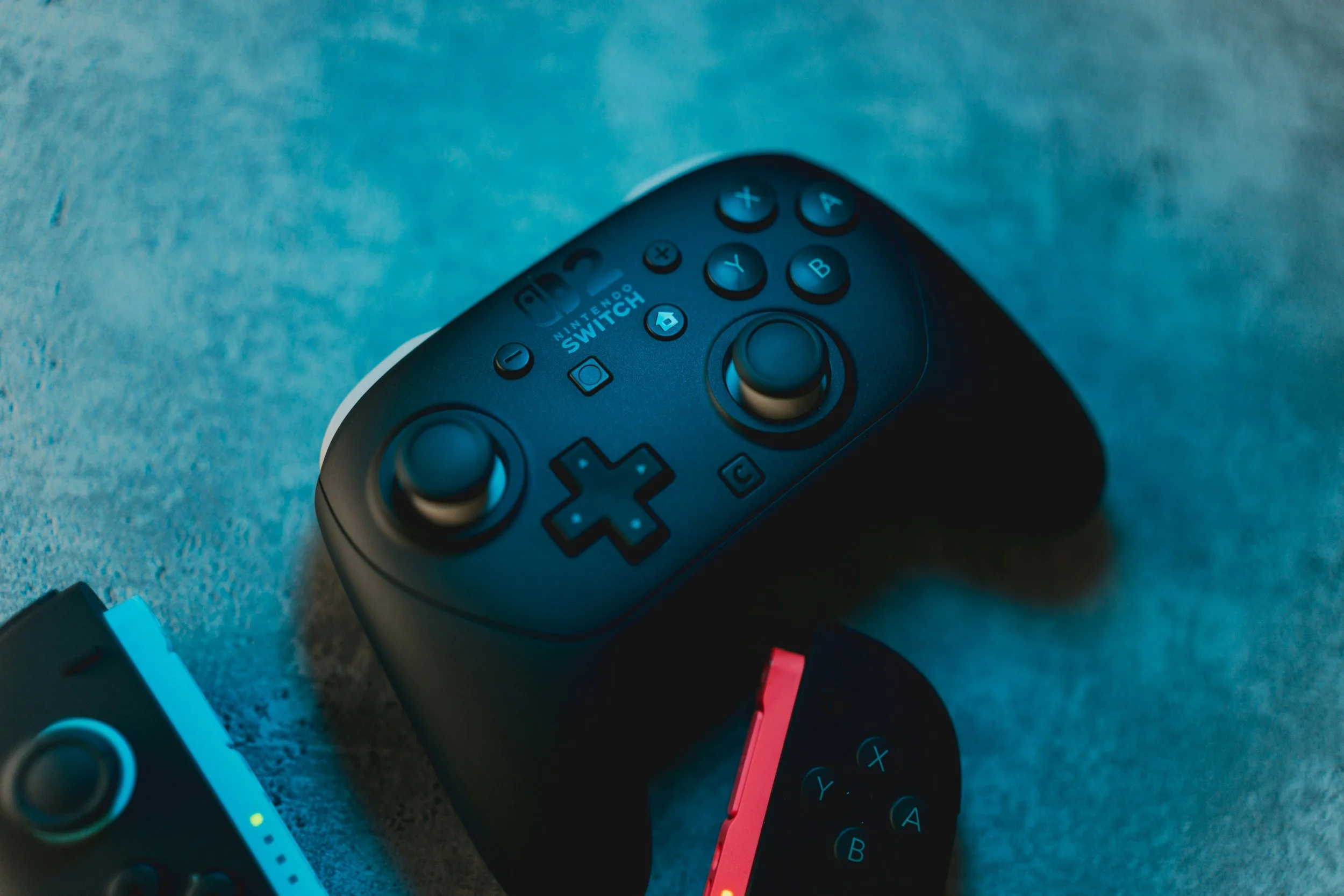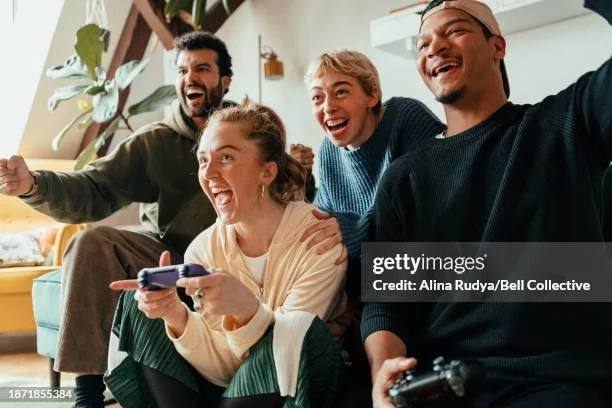Misogyny in gaming
Nintendo Switch Controller {Unsplash}
By Mason Paterson, Ally Collingham and Emma Crossan
Since the creation of the earliest home system gaming consoles such as the Odyssey or Atari, video games have been designed with young men in mind.
When they reached home audiences in 1972 an entire generation of youths were becoming obsesses with gaming. For decades it was a niche hobby intended for young men, enjoyed by shut-ins and those who preferred to spend their time indoors rather than outside. It wasn’t uncommon for women and girls to enjoy the same games. However, it was a shock to most men if they met a woman who enjoyed gaming.
A woman using a PC {Getty images}
Women have always played video games. They have existed in the same digital space as their male counterparts since Pac-Man first hit the arcades in 1980. According to a Statista survey on the distribution of video gamers in the United States, female gamers made up 38% of all gamers in 2006. The same survey saw a consistent rise in female gamers throughout the years, with them making up 44% of in 2015. Now ten years later they make up almost half, with a rise to 47% in 2025. This development has been consistent for years, with women making up a sizable chunk of gamers and spending towards games.
Despite this, women are still under-represented in games media and the industry. From the women depicted in the games, the women behind the games and the women who play them. There is a major imbalance between genders throughout the industry, and most games are still made by men for men. According to the GDC 2024 Report: More of the same, men make up most of the game developers in the industry, making up two-thirds of all developers, with just 23% of the developers surveyed being women.
A woman using a pc {Getty Images}
87% of development positions are held by men with tenured experience, granting them decision-maker positions. Only 5% of women were reported as having 20 or more years of experience in the industry.
Maire, a female Game Development student at City of Glasgow College, said: “Women are sticking up for themselves more to combat it, but I think a lot can be done to help them within the industry.”
The gaming industry is still largely made with the male gaze in mind. However, efforts are being made to create better female representation in games.
Recently, there have been many redesigns of beloved femme fatale heroines, such as Lara Croft and Jill Valentine. In Lara’s earliest depictions she wears short shorts and a tube top, designed with the intention of being attractive. The modern design for Lara Croft sees her as a realistic survivor, with more modesty and dressed to survive the harsh conditions she will encounter throughout the game. While many praised this decision, many men took to social media sites such as X to express their opinions on the new look. The Lara Croft redesign was described as “catering to a woke agenda that ruins video games.”
Similarly, Jill Valentine’s redesign was met with similar reactions.
Group of friends playing {Getty images}
Other characters such as Ellie from The Last of Us were met with criticisms due to her design not being sexualised. A recent controversy was over the design of the protagonist of Stellar Blade, Eve. Men praised her design and claimed it was a “return to form”, and that Eve was a “character made for gamers”. This is due in part to the character wearing nothing but a skin-tight suit that highlights her body.
The gamers themselves are not free from this discrimination either, with nearly half of all female gamers having experienced it. Three times more than male gamers, according to a report from Esports Giant Evil Geniuses. The issue is so prevalent in the gaming industry that many female gamers will hide their identity online when playing competitive games. In recent years, all female Esports teams will have their integrity and abilities questioned before tournaments start and female members of male dominated teams will also face harassment from their own teammates.
Alixxa, a member of Team Liquid and Fortnite Athlete, said: “The number of times I’ve seen women getting harassed by teammates, simply because they’re a girl, is horrifying. Action taken against them for expressing hate and sexism is slim to none.”
While great efforts have been made to make the industry more inclusive, we are still a long way from a misogynistic free gaming space.




